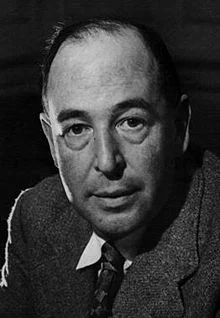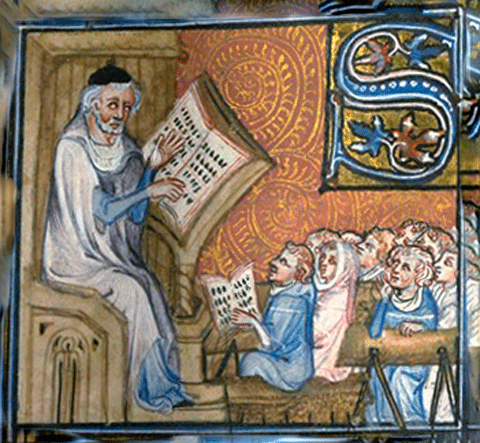The confessional Lutheran understanding of the Sabbath has always had tough sledding in America. Historically, the dominant religious culture in the U.S. is Reformed, and, more specifically, Puritan; and that tradition’s distinctive understanding of Sunday as “the Christian Sabbath” has been a persistent characteristic of American religion. Philip Schaff, the German Reformed historian and theologian, called it the “Anglo-American Sabbath”...
Review of "Four Birds of Noah’s Ark" by Thomas Dekker
I begin with a confession: the point during the worship service when I am most likely to yawn, get distracted, get plagued by phantom itches, or decide I have to go the bathroom is during the Prayers of the Church. This makes me a terrible person and a worse Christian. Nevertheless, there it is, prayer bores me far more often than it should. Which is why Four Birds of Noah's Ark is such a delightful surprise: prayers that do not bore...
Review of "Time and the Word" by Ephraim Radner
What both the historicist-materialist critical and the fundmentalist-inerrantist approach to Scripture have in common is that both are stuck on the question, “Did it really happen?” In Time and the Word, Ephraim Radner proposes a new point of departure for the church, primarily in its preaching and communal reading of Scripture, no longer beholden to either dead-end method. In so doing, he is not trying to dispense with the question of facticity. He’s rather trying to point out how limiting it is if that is the chief purpose of Scripture—to provide an accurate (or as it may turn out, inaccurate) reporting of events. And even presuming it is accurate, so what?...
A Lutheran Reflection on C. S. Lewis
Jovial were the celebrations of November 2013 on the fiftieth anniversary of C. S. Lewis’s passage into eternal glory. The panegyrics got me thinking about my own journeys through Lewis’s works, some repeated more times than I can count. It seemed like a good occasion to read the books I’d missed, reread the ones I loved, and figure out what it was that drew me—and countless others—so strongly to Lewis. Chief among the delights are his calm and accessible accounts of Christianity, his fair dealings with other religions, and the way his storyteller’s instincts bring the faith so vividly to life. At the same time, I hoped to sort out what in his thought has left me uneasy, uncertain, and unconvinced...
Recovering the Practice of Baptism
The central teaching, the key article of our Confessions, the premier doctrine of all Lutheran theology is justification before God, as a gift of God, on account of Jesus. Luther calls it “the first and chief article.” It is the foundation on which the church stands or falls. And of all our practices and teachings, baptism reflects that central teaching most clearly and brightly. So much so that baptism is described as the whole gospel in a nutshell...
Two Memoirs of Making the Lutheran Book of Worship
Shortly after his election as Bishop of Rome, John XXIII, who at age seventy-seven was expected to be a merely transitional pontiff, announced his intention to convoke a Council of the Roman Church to renew it by “opening the windows to let in some fresh air,” as he put it. A half-century later, its fiftieth anniversary was the occasion of a number of observances and publications evaluating the legacy of the Constitution on the Liturgy. Part of that legacy is the Lutheran Book of Worship of 1978. The first and most important observation to be made about the LBW is that it was a cooperative venture, and that fact immensely enriched the book...
Human and Divine Justice in America’s Criminal Justice System
The criminal justice system in America is crumbling as untold millions of dollars are wasted; waning confidence in the credibility of the system erodes our fragile democracy; and countless lives are ruined not just by crime but by our faulty responses to crime. And yet most of the basic principles of our system of criminal justice pass muster on the closest scrutiny and in fact have been copied across the world. There is, clearly, a gap between justice-in-principle and justice-in-real-life. This is a chasm very hard to leap across...
Luther's Doctorate and the Start of the Reformation
On October 19, 1512, Martin Luther became a doctor of theology at the University of Wittenberg. The proceedings lasted a week. First, the chancellor of the university issued him a license to teach (licentia docendi), and Luther took a vow to uphold the teachings of the church. Upon graduation, he received the doctoral insignia, delivered an address on theology (no longer extant), and chaired his first disputation. Finally, the faculty approved his acceptance into their collegium as a fellow master. The impact the event had on Luther the theologian far outlasted the medieval ecclesiastical structure that the Reformation stretched to the breaking point...
Review of "Adopted" by Kelley Nikondeha
If all inspirational books were like Kelley Nikondeha’s Adopted, we’d have a much a healthier church. Its piety is deep and genuine, its hope is tested by trial. If you are—or anyone you know is—struggling with fear, isolation, or forgetfulness about what makes for a good life, Adopted will bring you back to a better place...
Going Postal in Judges 19
The writer of Judges 19 begins by introducing his primary characters: a Levite who “took a concubine” and the concubine herself. The reader quickly becomes aware that this is not a happy tale. The union is not a joyful one, for already by verse two the woman leaves the man and returns to her father’s house. Finally, after four months, her husband comes looking for her, whereupon her father welcomes him with open arms and the two men join in drunken revelry...
The Bible in 66 Verses
I first posted this list five years ago on our old site, and it proved to be by far the most popular post ever. In case you who missed it the first time or are glad to have your memory jogged, here it is again. The rule I imposed on myself was that each book of the Bible had to be represented by one single, whole verse (no convenient deletions, like we do with the psalms in worship) but no more than that one verse (inspiring lines spanning two or more verses were out)...
Two Alternatives to Rebaptism in Brazilian Lutheranism
Debates regarding baptism and “rebaptism” recur again and again throughout church history, as seen in the Donatist controversy in the early church and the conflict between Luther and the enthusiasts in the days of the Reformation. The issue has also troubled the Evangelical Church of the Lutheran Confession in Brazil. The difficulties were occasioned, specifically, by the practice of rebaptism in some communities under influence of leadership linked to the charismatic movement...
Seeing and Believing as a Scientist
I am an experimental particle physicist, responsible for the operation of one of the largest experiments in the world: a fourteen-ton detector with one hundred million channels of readout to detect proton collisions at a rate of forty million times per second. Precision experiments, particles, quantification, and theoretical models—my workweek sounds rather cold and calculating. And on Sunday mornings, I go to church...
The Unfortunate Fate of Luther in the Ibero-American World
The matter of Luther’s reception in Ibero-America is corrupted. It is corrupted because Luther was never received as a thinker, a theologian, a linguist, or a spiritual reformer, but as a heretic, an enemy, a devil, and a disease. The principal concern of those who knew anything of him was to inoculate and expunge Luther’s necrotic, contagious cancer, whose very mention could ruin the unprecedented opportunity of ruling an orthodox land free of heresy...
A Lutheran Bishop's Apartheid Memoir
“Apartheid” is an Afrikaans word that can be translated into English as “the state of being apart.” It was a system of racial segregation imposed on South Africa starting in 1948, when the main nationalist Afrikaner party won the general election. Apartheid divided the population into four racial groups: white, black, colored, and Indian. A series of laws passed in the early 1950s compelled the four groups to live in separate locations based on race.This system of apartheid was said by its supporters to be God-ordained...
The Urge to Merge
Looking back on the twentieth century, two questions might be asked. First, why was there such a movement toward merger, and second, how did this whole process affect the course of American Lutheranism, especially but not exclusively the ELCA? To put it bluntly and directly, were all the efforts and energies expended on this process really worth it? ...
The Bluegrass Mass
Called by some the “jazz of country music,” bluegrass holds a special place in the Appalachian region of the United States. Popularized in the rural American South following World War II, the initial working-class audience grew over subsequent decades to include fans from across social and economic categories. Radio audiences first encountered Bill Monroe and his Blue Grass Boys in the 1940s, playing country classics with a quick tempo and a high lonesome sound...
The Ecclesiological Implications of an Open Table
In August 2013 the Northern Illinois Synod put forward a memorial at the ELCA churchwide assembly asking the church to consider whether holy communion should be administered only to the baptized. Should a change in the administration of holy communion be recommended and implemented in ELCA congregations, it would represent a drastic change in current and historic Lutheran sacramental policy...


















